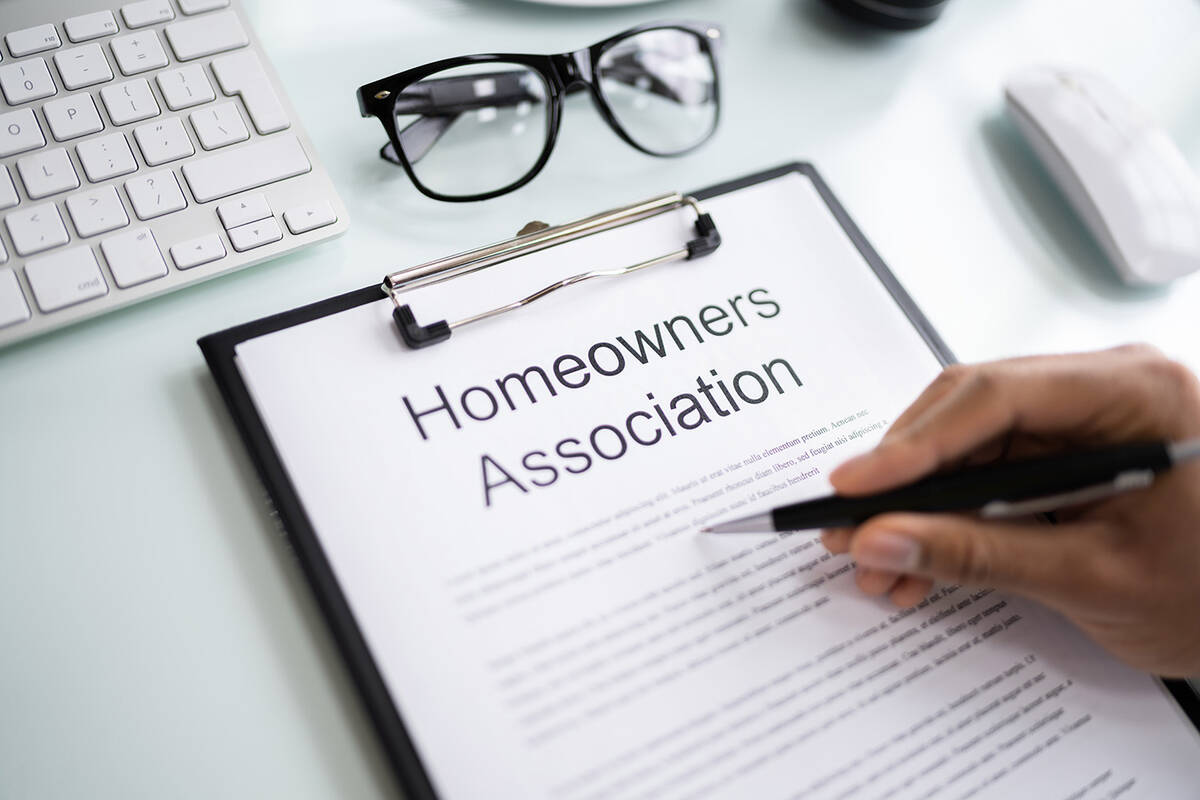Trash days always seem to be windy days
Q: I’m having an issue with our management and board members because on trash days stuff goes everywhere. It ends up way up in the canyon and, today, it was in my yard and became a choking hazard for my puppy.
For four years, I have been asking them to please tell the community to put things in bags because for some reason it is always windy on trash days.
Do you know what I can do to help spread the word or make management address this issue? It happens all the time and they do or say nothing about it.
A: You could write a personal letter to each board member asking them to address the trash issue by proposing a regulation that all trash must be in containers or in proper trash bags. You may want to check with your city or county to see what the trash ordinances are for residential communities. In addition, continue to bring up this issue at your board meetings during the second homeowners’ forum.
Q: I have been battling my draconian homeowners association management company for 15 years. I have always been polite and reasonable.
I told the assistant manager I hate the “way they treat me.”
She then said: “Because of your outburst, I will no longer accept your phone calls.”
And now, they won’t accept them. They aren’t reading my email, either (I have an email tracker.) For two years now.
Can they do this?
A: Per your email, your manager does not want to directly talk to you by telephone for what she perceives as unacceptable conversation, i.e. your alleged outbursts. Your manager may have that right.
As to your written emails, the association and the association manager have the obligation to read them and to respond to them. Under Nevada Revised Statutes 116.31087, the rights of homeowners to have certain complaints placed on an executive board agenda, if a homeowner alleges the association has violated any provisions of NRS 116 or their governing documents, the association, upon receiving the complaint, has no later than 10 days after receipt to acknowledge the complaint. The complaint must state that you want the item to be placed on the next board agenda.
The board would place the complaint on the agenda but could take no action.
If the association manager really thinks that your correspondance is out of line, she should have the association’s attorney contact you. If not, the manager should acknowledge your correspondance and answer it.
There does come a time when some homeowners will send dozen of emails every day to the manager. Please note that such conduct can be considered harassment.
Q: Our HOA has the good fortune to have reserve funds in higher-yield CDs. However, we will need to pay federal tax on 30 percent of earnings after deductions. Does Nevada law prohibit paying federal tax out of reserves? Virtually all earnings are from reserve CDs.
A: I don’t know if your association will be taxed 30 percent because of your reserve funds but there is no state law to prevent Uncle Sam from taking his cut, known as the “unearned” income.
Q: All HOAs, with few exceptions, must submit beneficial owner information before Jan. 1, 2025, to the Treasury Department Financial Crimes Enforcement Network, FinCEN. Penalty for noncompliance is high: $500 per day, $10,000 maximum. Does filing really require assistance of third-party companies that have popped up? Seems each board member just needs to request a FinCEN number and then complete the online form for the HOA. Is there a good reason to risk sharing private information with some third party, and pay the $300 fee, to handle the filing?
A: Board members should contact their CPAs to discuss this matter. If necessary, the association’s CPA could speak with the board members’ CPAs or accountants.
Barbara Holland, CPM, CMCA, is an author, educator and expert witness on real estate issues pertaining to management and brokerage. Questions may be sent to holland744o@gmail.com.



















